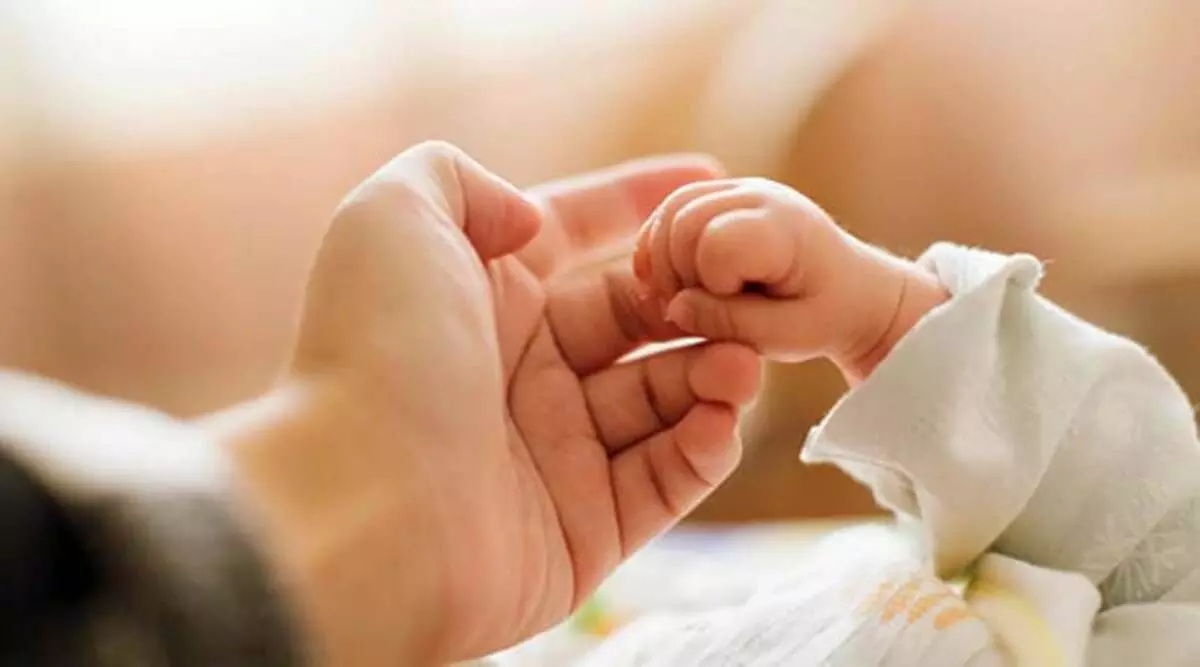
Adoption agreement on unborn child not known to law: Karnataka High Court
text_fieldsBengaluru: Dismissing an appeal by a couple, the Karnataka High Court observed that an adoption agreement of an unborn child is not known to law. The couple had made a similar agreement, PTI reported.
The division bench of Justices B Veerppa and KS Hemalekha said in their judgement, "As on the date of the agreement, the child was in the womb of appellant No.4, and the child was born on 26-3-2020, i.e. after five days of the agreement entered into between the parties. Thereby, both parties entered into an agreement in respect of an unborn child, which is unknown to law."
In the matter, the biological parents and adoptive parents of the child had filed a petition before a trial court to declare the latter as the adoptive parents and guardians of the baby girl. The former were Hindus and the latter Muslims.
The two couples entered into such an agreement since the biological parents were unable to look after a child because of poverty and the adoptive parents were childless. The agreement also specifies that no money was involved in it.
The court dismissed the plea observing that the agreement does not depict the welfare of the child. The couple then approached the High Court challenging the lower court's verdict.
The division bench of the HC, upholding the lower court decision, said that if the biological parents were concerned about the child, they could have put it up for adoption legally.
"If really appellant Nos.3 and 4, biological parents, came forward to give the child for adoption due to poverty, they could have surrendered the child to the concerned authority for the welfare of the child. Even if that was not possible, they could have taken care of by sending the child to government educational institutions, and now, the government has introduced various schemes for their essential day-to-day commodities," the HC said, rejecting the poverty claim.
"Both adoptive parents and biological parents have violated the rights of the child guaranteed under the provisions of Article 21 of the Constitution of India. Considering the peculiar facts and circumstances of the case, the very agreement for adoption on 21- 3-2020 entered between the parties is an invalid document and the same is not permissible under the principles of Mohammedan Law," the HC said.
After the agreement, the baby girl was in the adoptive parents' custody, but HC said that it was for the biological parents to seek her custody.
"It is needless to observe those biological parents approach the Child Welfare Committee if they really want their child back, and it is for the Child Welfare Committee to take appropriate steps and pass orders in accordance with the law," the court said and ordered the Child Welfare Committee to ensure that the child is not sold.
"If the Child Welfare Committee comes to the conclusion that after considering all the pros and cons in handing over the child to (the) biological parents, then the jurisdictional police is directed to monitor (them) so that the child is not sold to anyone and ensure that (they) shall take care of the paramount interest of the child," the High Court ruled.
The Udupi district police had registered a complaint against both the set of parents and two others for alleged selling of the child under the Juvenile Justice (Care and Protection of Children) Act, and the case is still pending.
The High Court refrained from passing any opinion on this issue and said it was for the trial court to decide on the issue.























